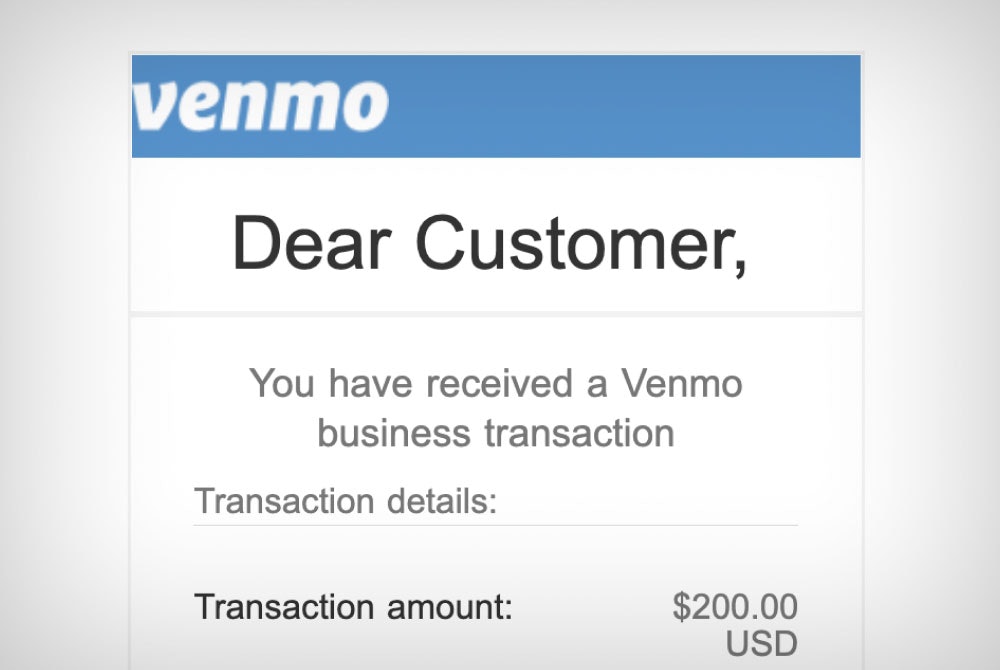- Best Practices When Using eBay
- Red Flags of eBay Scams
- Common eBay Scams to Watch Out For
- What Do You Do If You've Been Scammed on eBay
- Frequently Asked Questions
Since eBay officially launched its auction-based online marketplace in September 1997, people from all walks of life have assembled to buy and sell new, used, antique, and refurbished products. Unfortunately, like most good things in life, scammers likely immediately set out to find ways to use good faith auctions to their advantage. They still do it today and aren't likely to stop, but there are ways you can protect yourself and beat eBay scams.
Best Practices When Using eBay
While selling and bidding on eBay might feel like everyone participating has virtually gathered at the biggest online yard sale, there are some best practices both sellers and buyers should follow to stay safe:
- Stay vigilant when checking your emails to avoid phishing scams that often feature subject lines promising deals too good to be true or containing unfamiliar links.
- Close your browser if you see a pop-up asking you to verify your account information.
- Allow your suspicion to take hold if you receive an email asking you to verify account information—eBay wouldn't ask you to do this.
- Delete unfamiliar text messages, particularly those asking you to verify eBay account information.
- Don't respond to telephone-based verification requests via phone, email, or text.
- Read product descriptions thoroughly to avoid counterfeit products or misleading headlines.
- Look at where products are shipped from and confirm this is where they should have originated.
- Check seller and buyer profiles, especially when making your first transaction.
- Scan buyer and seller feedback to find out what other eBay members say about the party you're doing business with.
- Double-check to ensure that the photograph of the product is for the entire product or only a component of that product by reading the full product description and item specifics.
- Don't take your business off the eBay platform to try to negotiate a better deal, save on fees, or for any other reason. (Scammers may promise a discount if you wire money instead.)
- Keep all delivery and shipment details handy as a seller in case the buyer claims they didn't receive the product or didn't receive it on time.
- Only pay using eBay's payment system, and don't give anyone your bank account or credit card information.
- Don't accept checks for any purchase—the buyer could give you a bad or fake check.

- Products from well known brands
- Buyer protection via PayPal
- Extensive seller ratings & reviews
Red Flags of eBay Scams
The more experience you have using eBay, the more familiar you become with what's right and what feels off. The key is to follow your instincts when something seems fishy about a buyer or seller.
Here are some of the most common red flags to watch out for:
- Email inconsistencies, such as strange addresses, attachments, links, and poor grammar and spelling.
- A deal too good to be true.
- Links to eBay pages that don't include "ebay.com" in the URL.
- Links to sites that aren't secured (i.e., http:// instead of https://).
- Sketchy-looking photos on the product page.
- Items featuring a lot of positive reviews even though the seller's profile is relatively new.
- A seller asking for your PayPal email address instead of paying through the eBay website.
- A seller asking to complete the transaction outside of eBay's system. (E.g., asking you to transfer money directly to them via wire transfer).
- Anyone asking for your personal or financial information.
- A seller with zero or very little feedback and a relatively new account.
- A buyer requesting you to send packages to an address not listed on their eBay account, even if they are asking to send the item as a gift to relatives, especially if the address is outside the country.
The best way to avoid eBay scams is to look out for these red flags and proceed cautiously whenever you buy or sell items on the website.
eBay Gift Cards Are Used in Other Scams
Outside of eBay, if someone requests payment via eBay gift cards, it's likely a scam. Any requests for payment via gift cards of any kind signal sketchy sellers.
Common eBay Scams to Watch Out For
To beat scams on eBay, it's essential to be aware of the different scams targeting the site's users. Here are some of the most common eBay scams to watch out for.
The Empty Box Scam
This eBay scam is probably one of the oldest around. Sadly, it has caught many sellers off-guard and takes them for a lot of money since it often focuses on higher-value items, such as handbags and smartphones. Buyers (i.e., scammers) will buy and receive the goods, then file a claim saying they received an empty box, even though the seller ships the item as promised. The scammers even send back the empty box and keep the items.
It's recommended that you take photographs of every item shipped throughout the packing and shipping process so you can prove to eBay that you did send the product. It might seem overkill, but it's worth it to avoid falling victim to this scam.
The flipside of this scam is where the scammer is the seller. They post a picture of a legitimate item, for example, a Playstation, including the box. What buyers don't realize is that it's just the box that's for sale.
The seller may add tiny fine print within the product listing stating that they're only selling the box, so they're covered should you complain and ask for a refund. They'll make the purchase price high enough, so you think it's the actual product for sale (not just the box), but low enough that you feel it's a great deal and don't want to miss your chance.
Alternative Payment Method Scam
Sellers with bad intentions might request that you pay with an alternative or less monitored payment method, such as cash, check, money order, gift cards, or bank transfer.
Once the scammer has your payment via an untraceable option, they will cut off all communications, and you won't receive your item. The worst part is that if you went off-script and used an alternative payment method, eBay will not assist you because it falls outside the purview of their buyer protection program.
Counterfeit Goods
This is one of the major eBay scams to look out for, especially if you're trying to buy legitimate products. Since anyone can post items up for sale on the website, many companies sell counterfeit products, advertising them as the real deal.
While eBay and other big brands have tried to crack down on people selling fake products, plenty of counterfeit items are still sold every day.
There are legitimate sellers on eBay, but plenty of untrustworthy ones as well.
Additional Scams to Watch Out for on eBay
There are additional scams to keep an eye out for when conducting business on eBay, including those involving:
- Fraudulent/fake emails: Scammers create fake emails from eBay (even using the eBay logo and branding) to trick you into clicking phishing links or thinking payment has been made.
- Non-delivery of items: You order items that never arrive.
- Incorrect addresses: Buyers who give you the wrong address then claim they never received the item and demand a refund.
- Hidden links in emails: Scammers who send fake emails from eBay will often hide links in emails to make you accidentally click on them. They could take you to an untrustworthy website or download malware or viruses to your device.
- In-person collection/pickups: Some buyers may pick up their product and then claim later that they never received it. It's always safer to send items to eBay buyers, so there is proof you sent the item.
- Additional shipping costs added: After paying for your item, the seller requests additional payments to pay for extra shipping costs.
- Bait and switch: The seller sends you items you didn't order or tells you that the item is no longer available after you've paid. They'll usually try to switch the product for something worth much less than you paid.
- Fake reviews: Scammers will post fake positive feedback on their products so more people will buy them. This is a common scam on many e-commerce platforms.
What Do You Do If You've Been Scammed on eBay
Scammers will keep coming up with scams you can't possibly imagine as an honest buyer or seller. If you're the unfortunate victim of a scam, it's essential to take the following steps:
- Try to contact the buyer or seller to resolve the issue since eBay will only step if there is no resolution within three business days.
- Report the scam to the eBay Security Center. You should also report the issue to your credit card company, PayPal, or bank, depending on how you paid or accepted payment.
- Report the listing and seller by clicking directly on the listing at the bottom of the page that reads "Report this listing" if it is still posted by the time you decide to report the incident. Retain copies of all correspondence and anything you have or can find on the user profile to support your case. Make sure you have the correct user name and reference number.
- Get your money back by going through all the preceding steps and waiting until the last estimated date for intended delivery if the product hasn't yet been delivered or until the delivery arrives and the product is not as described.
- Learn more about eBay's protection for buyers and sellers. eBay's Buyer Protection allows you to open a case, escalate it, and ultimately have eBay review your case. eBay's Seller Protection enables you to report a buyer and helps resolve issues.
With these tips, you'll be better prepared to deal with eBay scams.











Comments